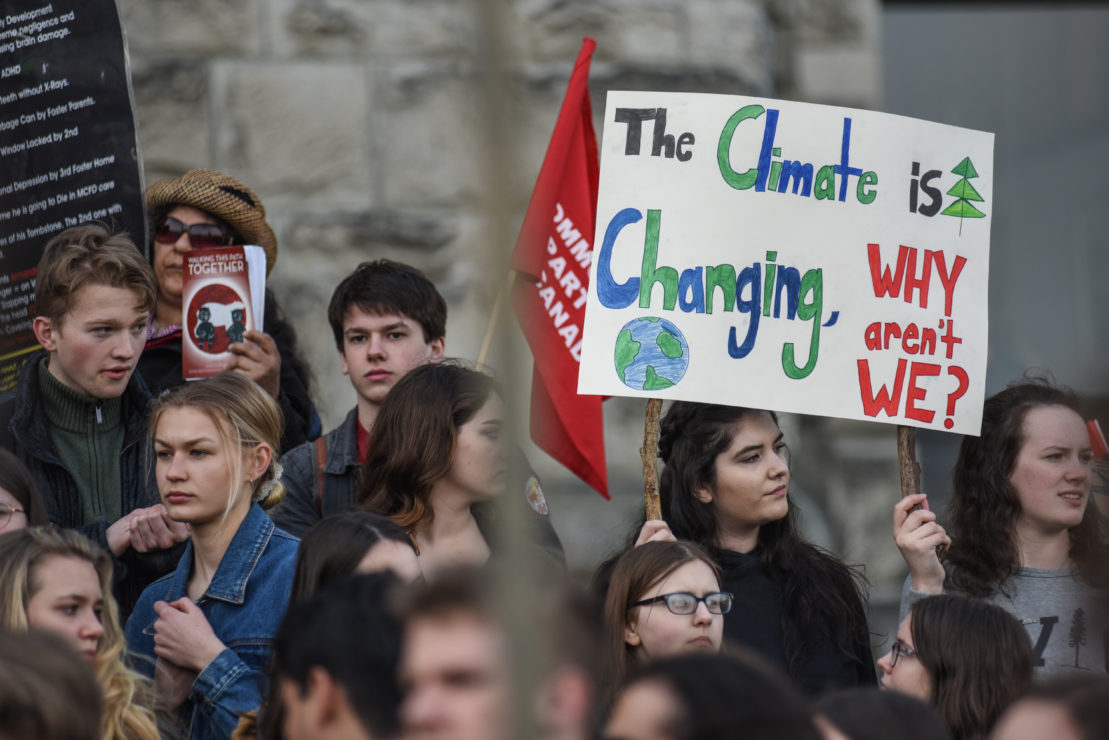We will continue to showcase action, provide crucial information, and build community

To act as an agent of constructive social change.
That is one of the commitments in our mission statement that the Martlet has made to the university and local communities — our readership. In an increasingly dire climate crisis, our staff here at the Martlet newsroom continue to reflect on what it means to act on this as students and young journalists.
The average person has no doubt been bombarded with a constant stream of stories on social media about the state of the world, whether it be disastrous climate events, or how yet another country has missed their goals or went back on their promises to take action against climate change. This framing only perpetuates the feeling of helplessness that is common among people regarding the state of our world, and in this way media can sometimes fuel fear and isolation, leaving readers immobilized in their own anxiety about what is to come.
We believe that media can be part of the solution, and in this issue we aim to deliver our stories in a way that inspires change, connects community, and spreads invaluable information. Led by our Climate Journalist Mary Heeg, this paper was a unified effort to bring you stories about researchers, scientists, local community members, and students who are doing great work within our communities.
In the following pages, we cover Indigenous-led restoration projects, climate anxiety, and climate adaptation.
Two new contributors in our Fall Volunteer Program, Dariel Smith and Kavita Premkumar, profiled two Indigenous-led climate projects on campus and in our broader community. These projects speak to how climate projects informed by Indigenous knowledge can accomplish more than just emissions reductions — they can also advance Indigenous resurgence and sovereignty. These articles are coupled with an opinion piece by Boston Laferté that further emphasizes the importance of Indigenous activism in climate actions.
In our lifestyle section, volunteer staff member Brianna Bock explores climate anxiety by speaking with students, professors, and experts. This article shows that readers are not alone in their experiences of climate dread.
In our feature story, Heeg delves into the heat dome and how it impacted Victoria’s unhoused population. Heeg spoke to an unhoused person with lived experiences and coupled that with perspectives from local organizations and government officials. Looking forward, Heeg turns toward climate adaptation and asks if our city is prepared for future extreme weather events.
Stories like these exemplify our community-based approach and our aim to provide important local coverage of what is fundamentally a global crisis.
As discussed throughout this climate issue, change is possible. From professors and researchers of climate to local initiatives and student activists, people are taking action. Simply reporting on events as they are without showing the efforts towards change people are making would, in our view, be irresponsible.
While it is our responsibility to report on hard topics like this climate crisis, we also aim to do so with intention. Not just with the intent of informing and raising awareness, but encouraging our readership to realize the power of their own agency in fostering change in their community, and feeling empowered to act. We aim to tell stories about community, about people. This crisis requires connection and coming together. As UVic’s new professor of environmental and climate journalism Sean Holman says in this issue: “we are all climate disaster survivors.”
And change begins in the community. As you read this issue, we hope we can raise your awareness of not only the climate crisis and the facts around how that will play out in years to come, but also of the people who are committed to taking action and what that looks like.
We hope to continue providing our readers with the latest news and headlines on the climate crisis in a way that unifies. We hope to give you the facts and the information you need to feel empowered in the face of such adversity. We hope that these stories and community leaders can help you get there.







